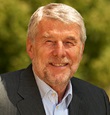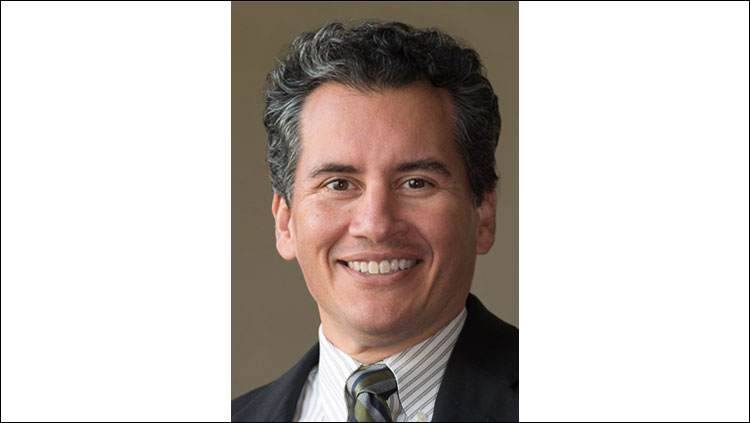Message From the President: Neuroscience Amid a Pandemic

Barry Everitt
Since my last message in January our lives have changed dramatically. As COVID-19 has swept the globe in the last few months, social (or rather physical) distancing has become the norm as so many of us are isolated at home, missing the social contacts that we have previously taken for granted and would have found impossible to contemplate being without as 2020 began.
The research that means so much to us has been put on hold as our labs have been closed — save those that are working day and night to produce an effective vaccine or trying to understand the molecular biology of the coronavirus with the hope that this might also lead to novel treatments that can attenuate the worst symptoms of the disease. Part of what makes this situation so unique and challenging is that no one can tell us when or how the lockdown will end, and so we must accept that our lives will be disrupted for the foreseeable future. It’s likely that many of us will have a personal experience with this virus, whether involving a family member, friend, colleague, or ourselves.
I am reminded in this time of the value of scientific exchange for the world at large — and I want everyone to know that the importance of the annual meeting in this regard is at the forefront of my mind, the minds of my SfN Council colleagues, SfN volunteer leaders, and of course the SfN staff who have been working from home with great dedication. While none of us can predict the future, we are in constant discussion about Neuroscience 2020. As you have likely seen, abstract submission has been delayed from April to July 6–16 and registration has shifted from July to August. This buys us a little time to make the best decisions possible regarding the meeting and also allows SfN members to better plan to the extent possible this year.
Although the last several weeks have disrupted research in an unprecedented way, reminders about the importance of research have nevertheless emerged. One is that high-quality research and the data that emerge from it are the fundamental basis for good decisions regarding public health. Experts are, in fact, essential after all! Another is a recognition of the significance of animals in research. Anthony Fauci, Director of the National Institute of Allergy and Infectious Diseases, has become a familiar and reassuring face to emerge from this pandemic, calmly and authoritatively basing his advice and opinions on the science and the data. He has especially noted the importance of animals when it comes to COVID-19 vaccine research at a March 26 White House Coronavirus Task Force briefing. “There are diseases in which you vaccinate someone, they get infected with what you are trying to protect them with, and you actually enhance the infection. You can get a good feel for that in animal models … The worst possible thing you can do is vaccinate somebody to prevent the infection and actually make them worse,” Fauci said.
“Despite our new circumstances, one thing about our neuroscience community evidently remains unchanged – our generosity.”I have also seen colleagues and others turn their skillsets to specialized training to serve on the front lines of this pandemic. This has been especially close to me as my son, a neurologist in London, has had the disease, eventually returned to work, and has been re-skilled for work in ICU when needed. I am heartened to see that there are many in our field who are selfless enough to risk their own health while pressing pause on their research agendas in order to help save lives. And despite our new circumstances, one thing about our neuroscience community evidently remains unchanged — our generosity. Many labs have donated their personal protective equipment to local hospitals or other healthcare facilities. Others are donating their time and expertise by converting their labs to deliver the massive number of COVID-19 tests that are required to identify those with the virus and so help save lives. Still others have joined the effort to develop accurate and reliable antibody tests so as to identify those who have been infected with the virus, which is so important for the future management of the pandemic.
For many of us, with our experimentally-based science largely on hold, we have found the time to tackle the backlog of tasks that are easy to ignore when fully in the lab, such as manuscript writing. Additionally, with more time to read the literature, neuroscientists have greater opportunity to connect ideas from disparate fields, produce exciting new hypotheses, and discuss them at vibrant and energetic virtual lab meetings. Remember that you can access JNeurosci with your SfN username and password and eNeuro is open access. There is also rich digital content to enjoy within Neuronline, from virtual conferences and a training series in optogenetics to professional development workshops and career advice.
The closure of labs and the premature curtailment of ongoing experiments has had an especially severe impact on graduate students and postdoctoral researchers. We must do everything we can to reassure them at this difficult time. It’s not at all clear whether adjustments will be made to the tenure of grants or whether additional funding to mitigate the damage to research projects and allow their completion can be made widely available. Those of us in senior and PI positions must use whatever means possible to influence institutions, funding agencies, and governments to extend the support to young researchers and ensure that their future careers are not placed in jeopardy as a result of this crisis. They are the future.
“The closure of labs and the premature curtailment of ongoing experiments has had an especially severe impact on graduate students and postdoctoral researchers.”As we all settle into our new routines, I encourage everyone to actively consider what you can do to ensure your physical and mental health and well-being as well as that of your colleagues and your communities. Reassure them that this enforced down time will end and they will return to the research to which they are so committed. Time spent with your families is time to cherish; caring for them and keeping them safe is far more important than any feelings of loss of productivity or progress. What is best for public health is our collective action: listen to the health experts, set aside individual plans, and prepare for what’s being asked of us over the coming days and months. While there is great uncertainty across the world, I have every confidence in our community to lead in the collective action of staying home and flattening the curve.


















